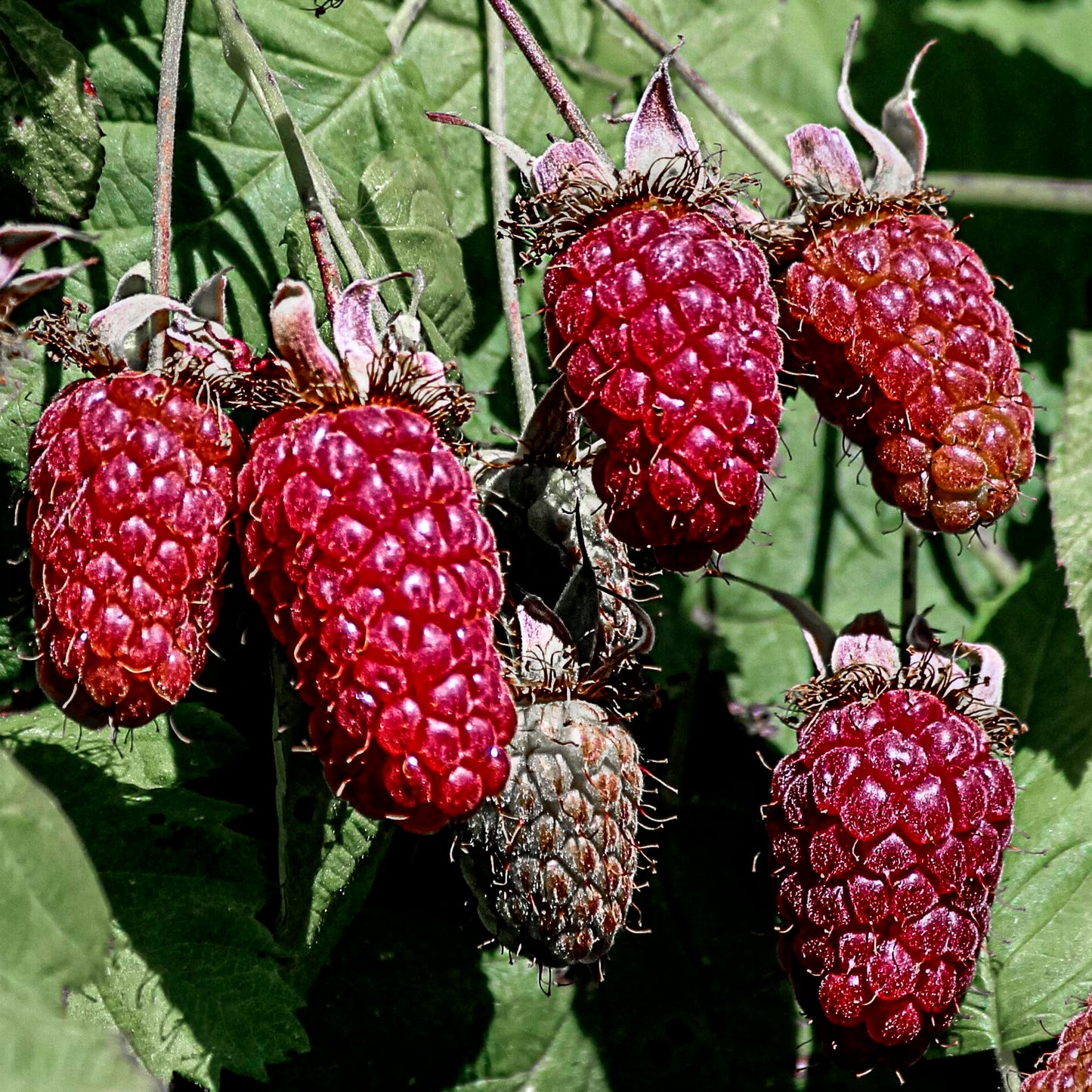Fruits And Shoots Plant Farm LTD.
Loganberry
Loganberry
Couldn't load pickup availability
This unique berry was developed in 1881 by James Harvey Logan, a California judge and amateur horticulturist. Logan was attempting to create a superior blackberry variety by cross-pollinating different species of blackberries. By accident, his blackberry plants were cross-pollinated with raspberry plants growing nearby. The resulting fruit, later named the "loganberry’, was larger and more robust than both parents, with the rich flavor of a blackberry and the tartness of a raspberry. Loganberries are heavy producers, with fruit ripening from mid to late summer. Canes are large, over an inch in diameter, and growing up to 8 feet long. It is the new canes that will produce the next years’ crop of fruit, so be careful to retain the previous season’s growth and only remove stems that have fruited. Pruning should be done in late winter. Hardy in USDA zones 5 through 9, Loganberries are an absolute must-have for berry enthusiasts.

Common Raspberry Questions
What type of soil do raspberries need?
Raspberries grow best in slightly acidic, moist but well-drained soil. Avoid heavy clays. We recommend adding wood chips in the planting row and mulching around the canes helps conserve moisture and improve soil tilth.
How do I prune summer-bearing raspberries?
Summer-bearing raspberries produce fruit in a concentrated 3-4 week period, making them ideal for freezing or juicing. The best way to maintain and prune summer bearing raspberries is to remove all canes that have fruited during the dormant season. These fruited stems will be a light gray color compared to the new canes that will still have some green or red color to them.
How do I prune everbearing raspberries?
Everbearing raspberries produce fruit in early summer on last year's canes (floricanes) and again in fall on new growth (primocanes). To maintain them, prune out the oldest and driest canes while keeping the new growth, even if they fruited in fall, as they will fruit again next spring. Alternatively, everbearing canes can be cut to the ground every winter and allowed to grow up and fruit in the fall. While this means they won’t fruit at all during the early summer months, they will yield a bountiful fall harvest with the easiest pruning regimen.
Summer-bearing v.s Everbearing?
Summer-bearing raspberries produce a large, concentrated harvest in a short period, making them ideal for preserving, but they only fruit once per season. Everbearing raspberries provide a steady supply of berries from early summer into fall, offering fresh fruit for months, but they yield smaller amounts at a time. Everbearing varieties also require more selective pruning unless cut to the ground annually, while summer-bearing types have a simpler pruning routine.

